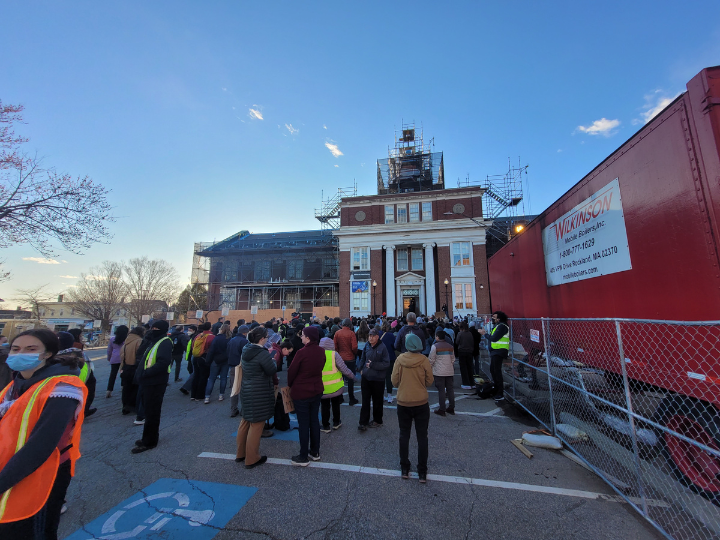Rallies in support of recently detained immigrants like Rümeysa Öztürk are important, but might it be possible to prevent federal agents from arresting immigrants in similar situations in the first place?
The arrest and detention of Tufts University doctoral student and legal immigrant Rümeysa Öztürk by US Immigration and Customs Enforcement on March 25 for what looks like the exercise of her First Amendment rights as a pro-Palestianian activist led to an immediate and, from my perspective, laudable reaction by over a thousand people from around Somerville, Medford, and the Boston area in the form of a rally in Nathan Tufts Park on March 26 demanding her release.
But beyond calling more rallies, as is continuing to happen, it’s not at all clear what people in Massachusetts who think the Trump administration’s anti-immigrant crusade is a serious danger to American democracy can do to stop ICE from raiding their neighborhoods—and, increasingly, college campuses—at will.
After all, ICE has been given broad powers by Republican and Democratic administrations alike to operate with relative impunity in its dual missions of “immigration enforcement” and “combating transnational crime” … two very different things, it’s worth noting. Plus it’s a division of the extremely powerful Department of Homeland Security, launched along with ICE in 2003 in direct response to the Sept. 11, 2001 terrorist attacks on the World Trade Center and Pentagon.
So it’s not like individuals who spot ICE agents on the street arresting someone like Öztürk have any chance of preventing them from doing whatever they’ve been ordered to do.
But perhaps groups of people well-trained in the tactics of nonviolent civil disobedience can succeed where individuals with no training and no plan would fail.
And what do I think this kind of helpful and peaceful action might look like? Action that could at least help diminish ICE’s ability to do things like play habeas corpus whack-a-mole with arrestees, as they just did with Öztürk, according to the Cambridge Day. Making it very difficult for her defense team to figure out where she was being held (and make sure she was detained here in immigrant-friendly Massachusetts) by moving her rapidly and secretly from state to state until they got her to immigrant-unfriendly Louisiana ahead of legal motions ICE knew were being filed to enjoin them from pursuing that precise course of action.
I’m not precisely sure how it might be done, but I do believe that a number of understandably incensed, pro-immigrant civil liberties and democracy advocates might think of a way to deploy good numbers of citizens (immigrants themselves would want to sit this kind of action out) and politicians to observe ICE raids from a respectful and legally defensible distance while they’re happening. Attracting the regional and national press like honey to the bee each time.
These activists could conceivably slow down the ICE arrest process long enough that they change the game—by simply being present in numbers without getting in ICE agents’ way, witnessing and recording what they are doing, asking them to explain their actions, and telling the world what is happening in real time.
Success would hardly be guaranteed, but if the timing of such nonviolent direct action is right, we might see the Trump administration get embarrassed enough by bad press and strong political support to back down and call ICE off from time to time. Which would be a positive sign of the efficacy of collective nonviolent resistance that would be telegraphed and likely imitated far and wide.
Would it be a risky undertaking for participating activists? Sure, civil disobedience always has its risks.
Would it be worth trying? That’s for the activists to decide, if preserving basic democratic rights for citizens and immigrants alike matters enough to them.
Interestingly, I am seeing indications that existing immigrant advocacy organizations are edging in the direction I suggest in Massachusetts and around the nation. So I do hope that they figure out how to make the kind of tactics in question work in practice … before the Trump administration’s assault on our immigrant neighbors gets completely out of hand.
Apparent Horizon—an award-winning political column—is syndicated by the MassWire news service of the Boston Institute for Nonprofit Journalism.






